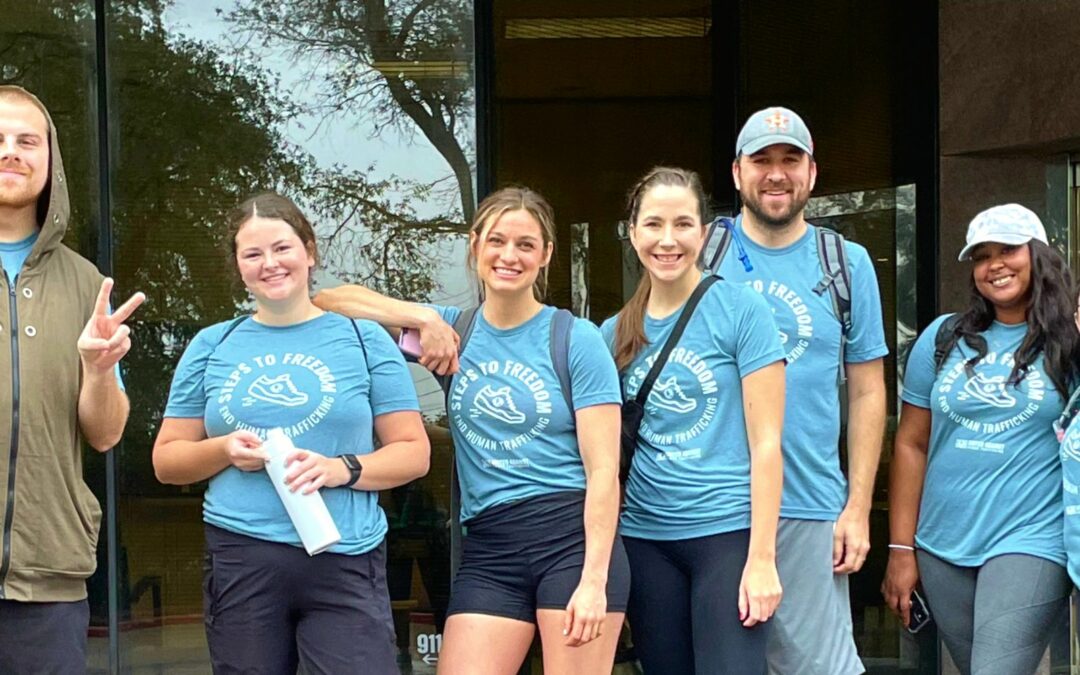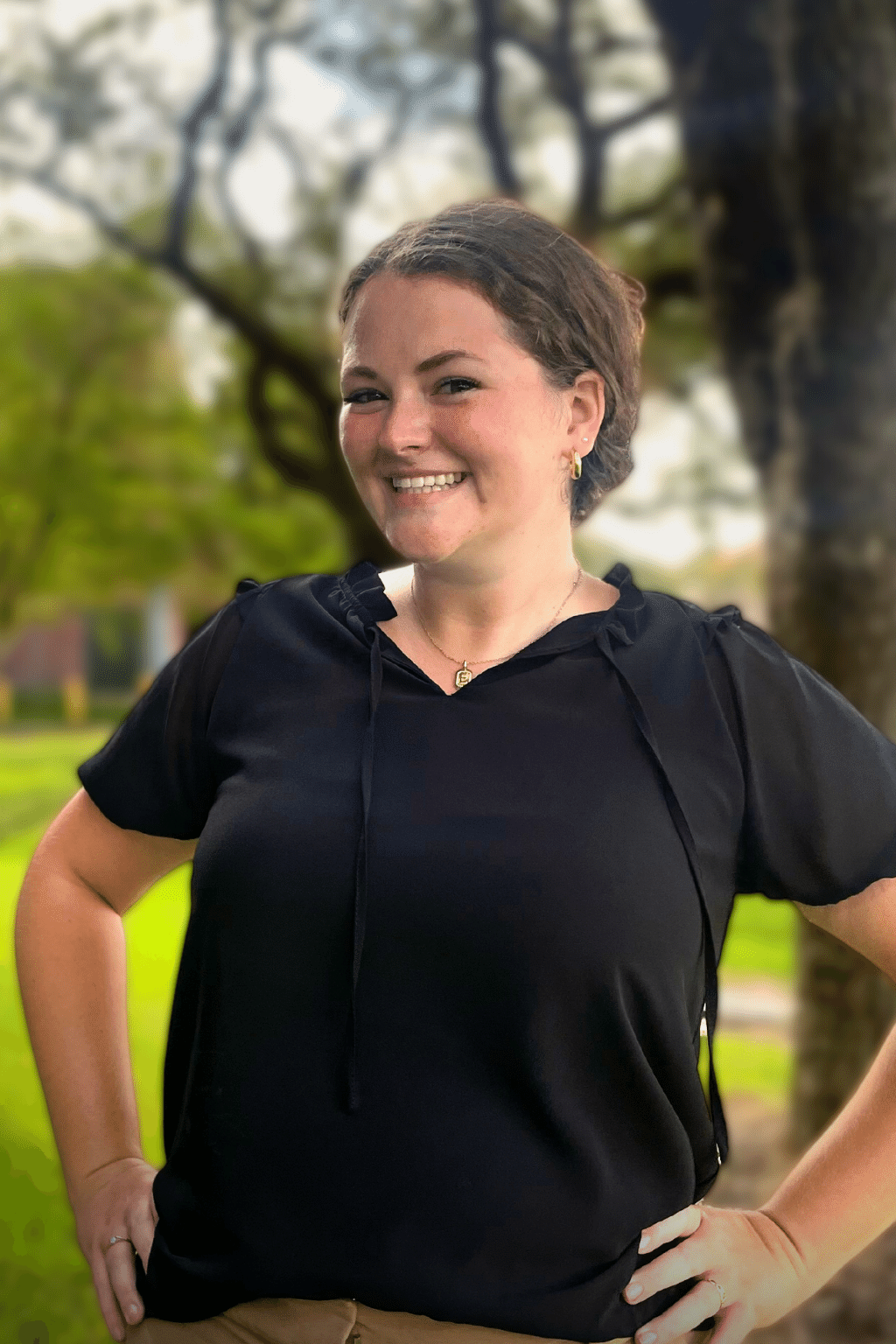
How Walking 13 Miles Helped Me Understand Human Trafficking Better
In August of 2022, I made the big move from a small community in Central Minnesota to the big city of Houston. While living here for the past 4 months I have been struck by the balance of beauty and hardship that this metro area has to offer.
I never realized how the vastness and urban sprawl could be met with such a lack of public transportation.
This Giving Tuesday, my team and I set out to walk the distance between United Against Human Trafficking’s two offices to demonstrate the hardship of lacking reliable form of transportation in the fourth –largest city in the United States. The journey between these two offices is about 13 miles.
The days leading up to the walk were faced with excitement and a little anxiety about the feat we were set out to accomplish. That morning started out humid and sticky with a decent chance of rain. As we gathered in the conference room, I realized that we had all prepared differently for the walk at hand, some of us brought trekking poles, while others packed enough snacks to feed a small army, but we were all unified by one common goal to walk these miles in solidarity with the clients we have the privilege of serving on a day-to-day basis. We were there to honor their experience by making a statement on how inaccessible the city can be for those who lack privilege.
As we walked, I noticed much more about Houston than I had ever had a chance to encounter while driving my vehicle.
We engaged with not only the sights that Houston had to offer, but the smells too. During our walk, I was most struck by the changes in scenery we experienced. We walked past refugee housing in Sharpstown, one of the most diverse neighborhoods of Houston – and then into West University where we were met with one of the wealthiest areas in the city. We even had the pleasure of walking through two different Bayou Trails, where we were struck by waterway and greenspace that can be rare to find in a city of our size.
We engaged with so many people along the way that made me remember why we are doing this work. From the inquisitive barista at Betsy’s, to the kind words of encouragement from the unhoused folks cleaning windshields on the feeder road to the man driving his truck along the bayou, who claimed to have ridden his bike across one of the support beams holding up the bayou walls in 1977.
Each person reminded me again of the vast variety of experiences that those in our beloved city are walking (no pun intended) through.
Physically, this walk was HARD!
From the unforgiving pavement to the occasional raindrops that splattered our shirts as we trekked. I felt every step by the time we were done. (For any of those hardcore half marathon or marathon runners out there, I have gained so much respect for the drive and tenacity it takes to commit to not walking those miles but RUNNING them!)
This walk took commitment. Commitment to our team when we were starting to feel tired, commitment to the city as we were committed to recognizing the beauty and the hard within the spaces we were walking through. We also had to commit to joy, even when that meant dancing and singing down the street to keep our spirits lifted.
And now, as I write this a day later, I also recognize this: It was only one day.
One day of inconvenience and struggle that I chose to take part in. I remind myself that to take real ownership of this experience, I must also acknowledge this was an act of solidarity, not the face of my reality. For others, that is not the case. The depth of their experience cannot be felt in 13 miles; it is something that must be engaged with on a regular basis – and even then, the empathy that I have gained from experience will truly never give me their entire story.
One day of walking in struggle and inconvenience is not enough to change the systems in which these injustices are allowed and even encouraged to exist. Solidarity does not come from one thirteen-mile journey. It does not come from one day of giving on the Tuesday after Thanksgiving.
Solidarity with those around us requires a daily inventory of our commitment to justice and equity. It is our duty as citizens to engage with not only the beauty that the world has to offer, but the hard parts too.
The best way to stand united with the challenges presented to us is to act.
Not just during this holiday season, but every day thereafter.

In solidarity and hope,
Elyse Lewandowski
Data Coordinator









